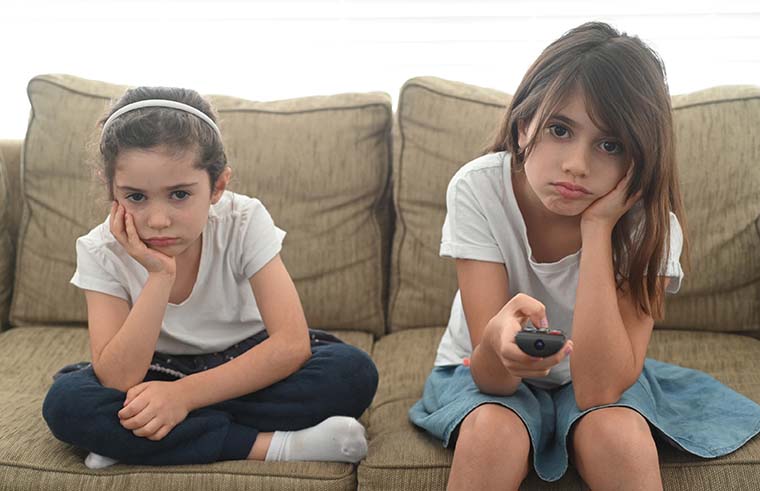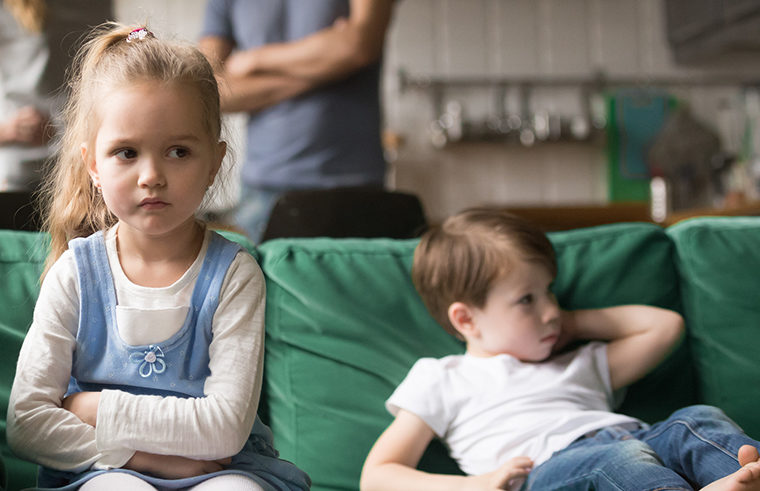Parents, you don’t always need to entertain your kids – boredom is good too!

Many Australian children are stuck at home due to the outbreak of COVID-19. They need to find ways to socialise, do their school work, exercise and entertain themselves.
It’s not surprising parents may be hearing “I’m bored” a lot more than before.
People hate being bored. So much so that in one study, one-quarter of participants said they would rather give themselves a painful shock than be in a room with no external stimulus (music, books, phones) for 15 minutes.
This shows how much people want to escape the feeling of boredom.
But while boredom causes temporary uncomfortable feelings, it can be good for us in many ways – from stimulating creativity to helping train our concentration.
Why do we get bored?
Boredom is an emotional state, that is temporary. A bored person has unpleasant feelings, lacks interest in completing tasks and has problems paying attention.
Boredom can come from lack of rest and nutrition, lack of mental stimulation or too much repetition (lack of novelty). People with a high sensitivity to reward, meaning those who need constant stimulation to feel satisfied, are more at risk of being bored.
A person can get bored if a task isn’t stimulating enough, if the work is too hard or too easy, and if activities lack meaning and challenge.
COVID-19 may throw up all these situations – sleepless nights, not enough novelty and a lack of control.

The good and bad of being bored
Boredom can lead to creativity. Participants in one study showed more divergent thinking (finding multiple uses for items, making connections between seemingly unrelated ideas and generating multiple creative ideas) after doing a boring task.
Creativity emerges because when one is bored, people actively seek something stimulating. Creativity is a challenge that meets this need.
Being bored also helps train our concentration and attention. While it is easy to turn to electronic devices to entertain and distract when we are bored, research shows devices don’t fulfil boredom.
In fact, this ‘shallow’ engagement with our devices decreases our ability to concentrate, attend to tasks and find flow.
Sitting with boredom and solving it is an effective way to train ourselves to concentrate and persevere through hard or monotonous tasks. It teaches us to go to different places in our minds when we don’t have external stimulation. In other words, our mind gets a workout. Boredom is good for us and it’s good for your kid.
Solutions to boredom
So if you find your child is getting bored, you don’t need to feel guilty you’re not entertaining them.
Instead, think about the following:
- Check your child isn’t just hungry or tired as everything can feel boring then. It isn’t boredom, just lack of energy to engage in an activity.
- These are unusual times where a lot feels out of control so see how you can provide your child with new day-to-day choices (such as a menu for the day, where you eat dinner or what order they do their school work in).
- Don’t feel obligated or responsible to stop this ‘terrible experience’ for your children. They can develop internal resources (attention, self-regulation, creativity) by having to solve the boredom problem themselves.
- Teach your child not to be afraid of the feelings that come with boredom, but excited. Boredom is a signal that indicates change is needed. Help them generate ideas and then pick one to engage in. Let them be responsible for the choice. Get them to create a ‘boredom box’ with ideas they can choose from.
- Boredom is sometimes just getting over the hard part of getting started. Your child may not be bored, just not knowing where to start. Help them break a task down and get started.
- Our attention is easily stolen by our mobile devices as they provide an easy distraction. Try setting a timer with your family, turn off your devices, and all engage in something meaningful for 20 minutes. Creativity emerges in space. You’ll never know what you could achieve if you keep distracting them.
Psychologist Heather Lench, who explores motivation, says boredom stops us ploughing the same old furrow, and pushes us to try to seek new goals or explore new territories or ideas. Rather than reject it, work with it and see what you and your children can create.
This post was written by Mandie Shean, Lecturer, School of Education, Edith Cowan University
This article is republished from The Conversation under a Creative Commons license. Read the original article.
 Need some support to be the best parent you can be? Our Parent School parent coaching experts can help. Click to find out more or book a one-on-one session.
Need some support to be the best parent you can be? Our Parent School parent coaching experts can help. Click to find out more or book a one-on-one session.









